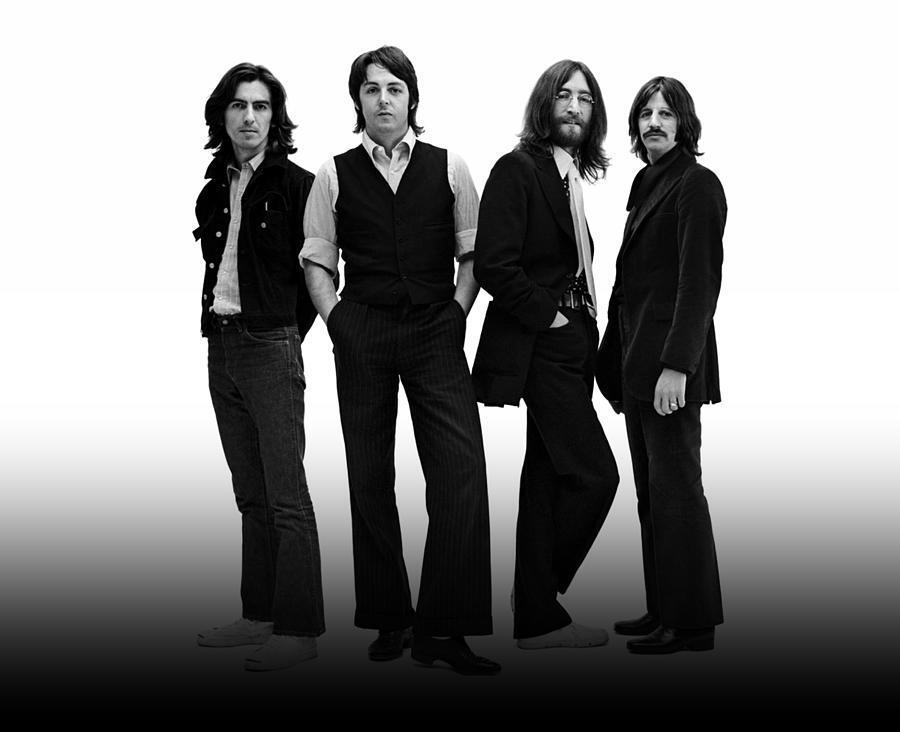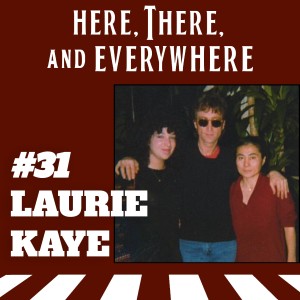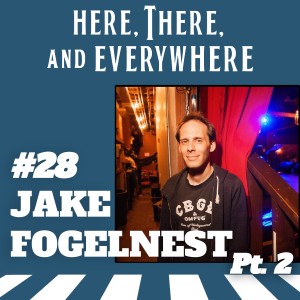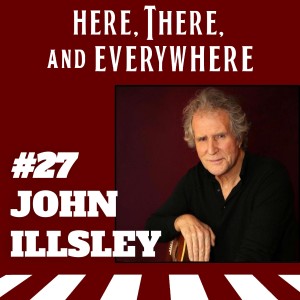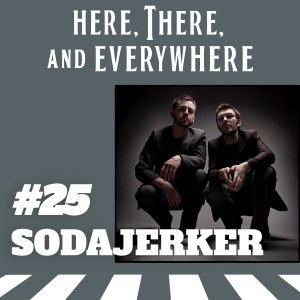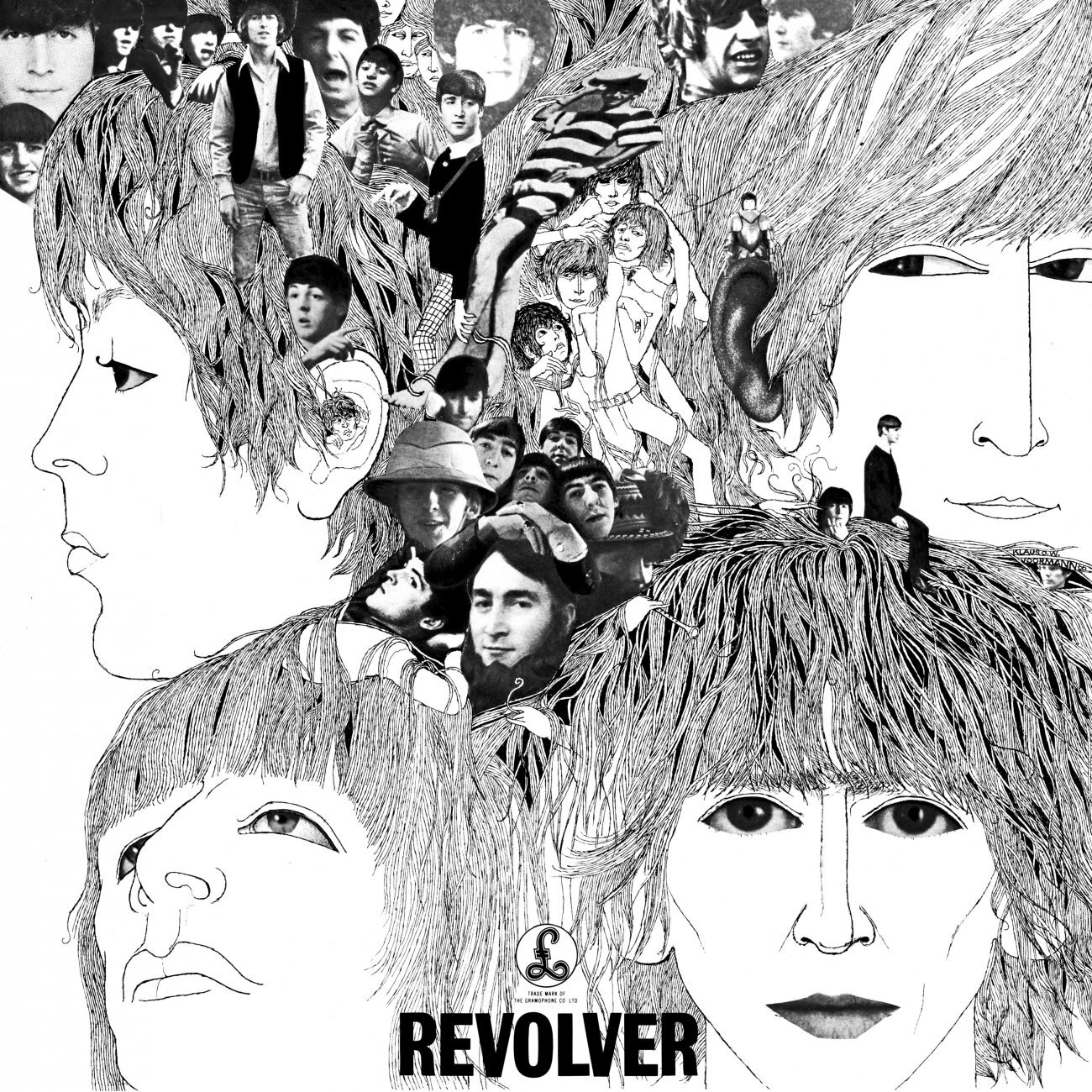John Illsley is the bass guitarist of the band Dire Straits. He has received multiple BRIT and Grammy Awards, and a Heritage Award. As one of the founding band members, with guitarist brothers Mark and David Knopfler, and drummer Pick Withers, Illsley played a role in the development of Dire Straits' sound. By the time the group disbanded in 1995 changes in personnel meant that Illsley and lead singer Mark Knopfler were the only two original band members remaining. Illsley was inducted into the Rock and Roll Hall of Fame as a member of Dire Straits in 2018.
In this episode, John speaks with Jack about his thoughts on The Beatles, their influence on him and Dire Straits, Paul McCartney's bass playing, whether or not there will be a biopic about Dire Straits, and his favorite Dire Straits record.
Check out John's recent solo album, VIII: https://open.spotify.com/album/4VVX7O3Jc8yJ0wJih8jTXf?si=qlKyeTrARSaN2RoXTbB0Hw
You can also buy John's book, "My Life in Dire Straits", here: https://www.amazon.com/My-Life-Dire-Straits-Biggest-ebook/dp/B08WBXZCQ1
If you like this episode, be sure to follow this podcast! Follow us also on Twitter and Instagram. Or click here for more information: Linktr.ee/BeatlesEarth
-------------------------------
The Beatles were an English rock band, formed in Liverpool in 1960, that comprised John Lennon, Paul McCartney, George Harrison and Ringo Starr. They are regarded as the most influential band of all time and were integral to the development of 1960s counterculture and popular music's recognition as an art form. Rooted in skiffle, beat and 1950s rock 'n' roll, their sound incorporated elements of classical music and traditional pop in innovative ways; the band later explored music styles ranging from ballads and Indian music to psychedelia and hard rock. As pioneers in recording, songwriting and artistic presentation, the Beatles revolutionised many aspects of the music industry and were often publicised as leaders of the era's youth and sociocultural movements.
Led by primary songwriters Lennon and McCartney, the Beatles evolved from Lennon's previous group, the Quarrymen, and built their reputation playing clubs in Liverpool and Hamburg over three years from 1960, initially with Stuart Sutcliffe playing bass. The core trio of Lennon, McCartney and Harrison, together since 1958, went through a succession of drummers, including Pete Best, before asking Starr to join them in 1962. Manager Brian Epstein moulded them into a professional act, and producer George Martin guided and developed their recordings, greatly expanding their domestic success after signing to EMI Records and achieving their first hit, "Love Me Do", in late 1962. As their popularity grew into the intense fan frenzy dubbed "Beatlemania", the band acquired the nickname "the Fab Four", with Epstein, Martin and other members of the band's entourage sometimes given the informal title of "fifth Beatle".
By early 1964, the Beatles were international stars and had achieved unprecedented levels of critical and commercial success. They became a leading force in Britain's cultural resurgence, ushering in the British Invasion of the United States pop market, and soon made their film debut with A Hard Day's Night (1964). A growing desire to refine their studio efforts, coupled with the untenable nature of their concert tours, led to the band's retirement from live performances in 1966. At this time, they produced records of greater sophistication, including the albums Rubber Soul (1965), Revolver (1966) and Sgt. Pepper's Lonely Hearts Club Band (1967), and enjoyed further commercial success with The Beatles (also known as "the White Album", 1968) and Abbey Road (1969). Heralding the album era, their success elevated the album to the dominant form of record consumption over singles; they also inspired a greater public interest in psychedelic drugs and Eastern spirituality, and furthered advancements in electronic music, album art and music videos. In 1968, they founded Apple Corps, a multi-armed multimedia corporation that continues to oversee projects related to the band's legacy. After the group's break-up in 1970, all principal members enjoyed success as solo artists and some partial reunions have occurred. Lennon was murdered in 1980 and Harrison died of lung cancer in 2001. McCartney and Starr remain musically active.
The Beatles are the best-selling music act of all time, with estimated sales of 600 million units worldwide.[4][5] They hold the record for most number-one albums on the UK Albums Chart (15), most number-one hits on the US Billboard Hot 100 chart (20), and most singles sold in the UK (21.9 million). The band received many accolades, including seven Grammy Awards, four Brit Awards, an Academy Award (for Best Original Song Score for the 1970 documentary film Let It Be) and fifteen Ivor Novello Awards. They were inducted into the Rock and Roll Hall of Fame in 1988, and each principal member was inducted individually between 1994 and 2015. In 2004 and 2011, the group topped Rolling Stone's lists of the greatest artists in history. Time magazine named them among the 20th century's 100 most important people.
Dire Straits were a British rock band formed in London in 1977 by Mark Knopfler (lead vocals and lead guitar), David Knopfler (rhythm guitar and backing vocals), John Illsley (bass guitar and backing vocals) and Pick Withers (drums and percussion). They were active from 1977 to 1988 and again from 1990 to 1995.
Their first single, "Sultans of Swing", from their 1978 self-titled debut album, reached the top ten in the UK and US charts. It was followed by hit singles including "Romeo and Juliet" (1981), "Private Investigations" (1982), "Twisting by the Pool" (1983), "Money for Nothing" (1985), and "Walk of Life" (1985). Their most commercially successful album, Brothers in Arms (1985), has sold more than 30 million copies; it was the first album to sell a million copies on compact disc[4][5] and is the eighth-bestselling album in UK history. According to the Guinness Book of British Hit Albums, Dire Straits have spent over 1,100 weeks on the UK albums chart, the fifth most of all time.
Dire Straits' sound draws from various influences, including country, folk, the blues rock of J. J. Cale, and jazz.[7] Their stripped-down sound contrasted with punk rock and demonstrated a roots rock influence that emerged from pub rock. There were several changes in personnel, with Mark Knopfler and Illsley being the only members who lasted from the beginning of the band's existence to the end. After their first breakup in 1988, Knopfler told Rolling Stone: "A lot of press reports were saying we were the biggest band in the world. There's not an accent then on the music, there's an accent on popularity. I needed a rest." They disbanded for good in 1995, after which Knopfler launched a solo career full-time. He has since declined numerous reunion offers.
Dire Straits were called "the biggest British rock band of the 80s" by Classic Rock magazine; their 1985–1986 world tour, which included a performance at Live Aid in July 1985, set a record in Australasia. Their final world tour from 1991 to 1992 sold 7.1 million tickets. Dire Straits won four Grammy Awards, three Brit Awards (Best British Group twice), two MTV Video Music Awards, and various other awards. They were inducted into the Rock and Roll Hall of Fame in 2018. Dire Straits have sold over 120 million units worldwide, including 51.4 million certified units, making them one of the best-selling music artists.
Brothers Mark and David Knopfler, from Newcastle in northeast England, and friends John Illsley and Pick Withers, from Leicester in the east midlands, formed Dire Straits in London in 1977. Withers was already a 10-year music business veteran, having been a session drummer for Dave Edmunds, Gerry Rafferty, Magna Carta and others through the 1970s; he was part of the group Spring, which recorded an album for RCA in 1971. At the time of the band's formation, Mark was working as an English teacher, Illsley was studying at Goldsmiths' College, and David was a social worker. Mark and Withers had both been part of the pub rock group Brewers Droop at different points in and around 1973.
The band was initially known as the Café Racers. The name Dire Straits was coined by a musician flatmate of Withers, allegedly thought up while they were rehearsing in the kitchen of a friend, Simon Cowe, of Lindisfarne. In 1977, the group recorded a five-song demo tape which included their future hit single, "Sultans of Swing", as well as "Water of Love" and "Down to the Waterline".[18][19] After a performance at the Rock Garden in 1977, they took a demo tape to MCA in Soho but were turned down. They then went to DJ Charlie Gillett, presenter of Honky Tonk on BBC Radio London.[20] The band simply wanted advice, but Gillett liked the music so much that he played "Sultans of Swing" on his show. Two months later, Dire Straits signed a recording contract with the Vertigo division of Phonogram Inc. In October 1977, the band recorded demo tapes of "Southbound Again", "In the Gallery" and "Six Blade Knife" for BBC Radio London; in November, demo tapes were made of "Setting Me Up", "Eastbound Train" and "Real Girl".
The original Dire Straits line-up in Hamburg, Germany (1978); L to R: John Illsley, Mark Knopfler, Pick Withers and David Knopfler
The group's first album, Dire Straits, was recorded at Basing Street studios in Notting Hill, London in February 1978, at a cost of £12,500. Produced by Muff Winwood, it was first released in the United Kingdom on Vertigo Records, then a division of Phonogram Inc. It came to the attention of A&R representative Karin Berg, working at Warner Bros. Records in New York City. She felt that it was the kind of music audiences were hungry for, but only one person in her department agreed at first. Many of the songs on the album reflected Mark Knopfler's experiences in Newcastle, Leeds and London. "Down to the Waterline" recalled images of life in Newcastle; "In the Gallery" is a tribute to Leeds sculptor/artist Harry Phillips (father of Steve Phillips); "Wild West End" and "Lions" were drawn from Knopfler's early days in the capital.
That year, Dire Straits began a tour as opening band for Talking Heads, after the re-released "Sultans of Swing" finally started to climb the UK charts. This led to a United States recording contract with Warner Bros. Records; before the end of 1978, Dire Straits had released their self-titled debut worldwide. They received more attention in the US, but also arrived at the top of the charts in Canada, Australia and New Zealand. Dire Straits eventually went top 10 in every European country.
The following year, Dire Straits embarked on their first North American tour. They played 51 sold-out concerts over a 38-day period. "Sultans of Swing" scaled the charts to No. 4 in the United States and No. 8 in the United Kingdom.[24][26] The song was one of Dire Straits' biggest hits and became a fixture in the band's live performances. Bob Dylan, who had seen the band play in Los Angeles, was so impressed that he invited Mark Knopfler and drummer Pick Withers to play on his next album, Slow Train Coming.
Recording sessions for the group's second album, Communiqué, took place in December 1978 at Compass Point Studios in Nassau, Bahamas. Released in June 1979, Communiqué was produced by Jerry Wexler and Barry Beckett and went to No. 1 on the German album charts, with the debut album Dire Straits simultaneously at No. 3. In the United Kingdom, the album peaked at No. 5 in the album charts. Featuring the single "Lady Writer", the second album continued in a similar vein to the first and displayed the expanding scope of Knopfler's lyricism on the opening track, "Once Upon a Time in the West".[28] In the coming year, however, this approach began to change, along with the group's line-up.









